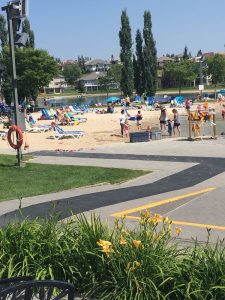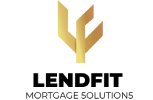What are Home Owner Associations (HOA`s)?

Home Owners`Associations (HOA`s) are usually created when a new housing development is built. When you purchase a property in these communities, you pay an annual fee to the community association which goes towards the maintenance of community amenities, such as lakes, spray parks, tennis courts and outdoor skating rinks, to name a few examples. Part of the appeal of these communities is that they are well looked after, with gardens or waterfalls welcoming you to the neighborhood.
Membership in the association is typically a condition of a home purchase. HOA`s are formal legal entities established to maintain the quality and value of the properties and common areas involved, and to ensure compliance with their internal rules and obligations.
HOA FEES
HOA fees are determined by the land developer at the time of community planning. All the properties that are subject to HOA fees have an item registered on their land title. In different communities, the Home Owners Association Fees cover different things.
For example, in lake communities, residents` annual fees go towards maintaining the acceptable quality of the lake water through employing maintenance workers, purchasing the appropriate facility equipment and working to ensure attractive grounds. For communities that don’t have lakes, these fees are put towards the upkeep and repair of the neighborhoods` common areas including ponds (water quality & pumps for example), parks and greenways (lawn mowing, weeding & tree maintenance to name a few) and outdoor community skating rinks (water for flooding, equipment for ice maintenance & rink boards).
There are lots of other amenities throughout different neighborhoods in the city that maintain curb appeal thanks to the HOA fees that residents pay. If you’ve decided to purchase a home in a community with HOA fees, these fees are mandatory and due on an annual basis regardless of whether you use these community facilities or not. These fees are shared by all property owners to help keep the community looking good.
Every community has different structures for charging HOA fees. There isn’t a fee-charging standard that neighbourhoods must follow; it is completely dependent on what neighborhood you live in. HOA fees are never optional; nor do all properties in the same community have the same fee.
HOA GOVERNANCE
Homeowners Association members typically meet once a month and focus on handling the HOA’s business. Residents participate in annual elections and vote for board members and directors. You’re asked to pay a membership fee that ranges according to location and size of a neighborhood. Homeowners Association bylaws are the most important points to look at when signing a purchase agreement – Be extra careful when reading the contract; in extreme circumstances, disobeying the rules can lead to a lawsuit.
The board of directors meets members typically on an annual basis to discuss current bylaws. If members disagree with any point mentioned in the bylaws, a referendum is held. Details regarding elections and referenda are specific for every HOA and are further explained in the contract.
CONSTRUCTION & RENOVATIONS
Every reconstruction needs to be approved by board members. The HOA board also needs to make sure all property developments meet the minimal standards; that they are fully functional, and don’t pose a threat to the owners themselves or their neighbors. It can be a small repair such as painting the window frames or large-scale a change including but not limited to painting your house or changing your roof. The board will make sure the reconstruction complies with the overall design of the neighborhood and will not stick out more than necessary.
the HOA board can enforce homeowners to repair any faults that will develop on their property. Not accepting the enforcement can lead to a lawsuit. If a certain fault is discovered, homeowners need to make sure the fault will be fixed or repaired. Proper repair and maintenance will keep your property from developing and accelerating the damage already caused. In many cases, it also prevents neighboring properties from being damaged.
UNPAID FEES
In some cases, you’ll be denied access to the facilities such as lakes or community rentals until your fees (and any outstanding interest) is paid in full. If a homeowner doesn’t pay their mandatory fees all outstanding costs associated to the HOA fees will be collected at the time the property is sold through the proceeds of sale (because the HOA fees are a registered encumbrance on the land title).
HOA vs. CONDO FEES
HOA fees are not to be confused with Condominium fees. Condo fees are monthly fees that condo owners pay to the condo management company to maintain the building and the condo grounds. Only people who own a condo pay condo fees. HOA fees are paid by all people who own property in a given community, regardless of the type of property, single family, townhouse, condominium or villa, for example. It is important to note that people who do own a condo in a community with HOA fees will be paying both monthly condo fees and the annual HOA fee.
Not everything within the boundaries of your community is the responsibility of the Home Owners or Community Association. Areas such as streets, sidewalks and sewers are all handled through the City. Community off-leash dog parks are taken care of by the City By-law services. Call 3-1-1 or visit to submit a service request to the City.
Contact Canada West Mortgage for more information.



